
0
+
Google Reviews

0
+
4.2 (2036 Ratings)
Radical Technologies will provide complete hands-on training on Red Hat OpenShift Container Platform
Red Hat OpenShift Container Platform is a containerized application platform that allows enterprises to manage container deployments and scale their applications using Kubernetes. OpenShift Container Platform provides predefined application environments and builds upon Kubernetes to provide support for DevOps principles such as reduced time to market, infrastructure-as-code, continuous integration (CI), and continuous delivery (CD).
Exam Preparations is part of this training.


Curriculum Designed by Experts
Introduction to building and managing docker containers for deployment on a Kubernetes cluster
Introduction to Containers, Kubernetes, and Red Hat OpenShift (DO180)
As a result of attending this class, students should be able to containerize simple software applications and services; deploy them with Docker, Kubernetes, and Red Hat OpenShift; test the containerized version; and troubleshoot issues with deployment.
One of the key tenets of the DevOps movement is continuous integration and continuous deployment. Containers have become a key technology for the configuration and deployment of applications and microservices. Kubernetes is a container orchestration platform that provides foundational services in Red Hat OpenShift Container Platform.
Understand container, Docker, and Red Hat OpenShift architecture.
Create containerized services.
Manage containers and container images.
Create custom container images.
Deploy containerized applications on Red Hat OpenShift.
Deploy multi-container applications.
Course introduction
Introduce and review the course.
Get started with container technology
Describe how software can run in containers orchestrated by Red Hat OpenShift Container Platform.
Create containerized services
Provision a server using container technology.
Manage containers
Manipulate pre-built container images to create and manage containerized services.
Manage container images
Govern the life cycle of a container image from creation to deletion.
Create custom container images
Design and code a Docker file to build a custom container image.
Deploy containerized applications on Red Hat OpenShift
Deploy single container applications on Red Hat OpenShift Container Platform.
Deploy multi-container applications
Deploy applications that are containerized using multiple container images.
Troubleshoot containerized applications
Troubleshoot a containerized application deployed on Red Hat OpenShift.
Comprehensive review of Introduction to Container, Kubernetes, and Red Hat OpenShift
Demonstrate how to containerize a software application, test it with Docker, and deploy it on a Red Hat OpenShift cluster.
Create, configure, manage, and troubleshoot OpenShift clusters
Red Hat OpenShift Administration I (DO280) teaches you how to install and administer the Red Hat® OpenShift® Container Platform. This hands-on, lab-based course shows you how to install, configure, and manage OpenShift clusters and deploy sample applications to further understand how developers will use the platform.
OpenShift is a containerized application platform that allows enterprises to manage container deployments and scale their applications using Kubernetes. OpenShift provides predefined application environments and builds upon Kubernetes to provide support for DevOps principles such as reduced time to market, infrastructure-as-code, continuous integration (CI), and continuous delivery (CD).
Install an OpenShift Container Platform cluster
Configure and manage masters and nodes
Secure OpenShift
Control access to resources on OpenShift
Monitor and collect metrics on OpenShift
Deploy applications on OpenShift Platform Container using Source-to-Image (S2I)
Introduction to Red Hat OpenShift Container Platform
List the features and describe the architecture of the Openshift Container Platform.
Install OpenShift Container Platform
Install OpenShift and configure the cluster.
Explore OpenShift networking concepts
Describe and explore OpenShift networking concepts.
Execute commands
Execute commands using the command-line interface.
Manage OpenShift resources
Control access to OpenShift resources.
Allocate persistent storage
Implement persistent storage.
Manage application deployments
Manipulate resources to manage deployed applications.
Metrics subsystem
Install and configure the metrics-gathering system.
Manage and monitor
Manage and monitor OpenShift resources and software.
Enrolling in a RedHat OpenShift course training equips you with in-demand skills like container management, Kubernetes orchestration, and automation on hybrid cloud platforms. Mastering OpenShift prepares you to Effective application deployment, management, and scaling are essential competencies for DevOps and cloud jobs.
Completing a RedHat OpenShift course training opens career paths in DevOps, cloud engineering, and systems administration. With skills in OpenShift, you can work in cloud-native app management, orchestration, and automation—high-demand roles crucial for modern IT infrastructure and hybrid cloud environments.
Enrolling in RedHat OpenShift course training enables skills crucial for cloud adoption. OpenShift expertise supports seamless app deployment, scaling, and management across cloud environments, empowering businesses to optimize cloud resources and drive digital transformation with confidence.
RedHat OpenShift course training empowers you with in-demand skills for achieving scalability and flexibility in cloud-native environments. By mastering OpenShift, you’ll learn how to manage, deploy, and scale applications seamlessly, adapting resources efficiently to meet evolving business demands across hybrid clouds.
RedHat OpenShift course training provides valuable skills in cost management for cloud environments. With OpenShift expertise, you’ll learn to optimize resource allocation, streamline application deployment, and reduce operational expenses, ensuring a cost-effective approach to cloud infrastructure management.
Advance your career with Red Hat OpenShift Course Training and gain expertise in security and compliance for containerized applications. This course covers securing deployments on hybrid cloud platforms, ensuring data protection, regulatory adherence, and a resilient application infrastructure for top-tier IT roles.
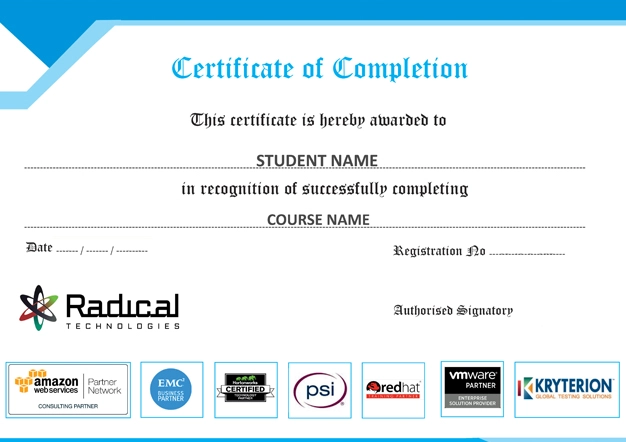


At Radical Technologies, we are committed to your success beyond the classroom. Our 100% Job Assistance program ensures that you are not only equipped with industry-relevant skills but also guided through the job placement process. With personalized resume building, interview preparation, and access to our extensive network of hiring partners, we help you take the next step confidently into your IT career. Join us and let your journey to a successful future begin with the right support.
At Radical Technologies, we ensure you’re ready to shine in any interview. Our comprehensive Interview Preparation program includes mock interviews, expert feedback, and tailored coaching sessions to build your confidence. Learn how to effectively communicate your skills, handle technical questions, and make a lasting impression on potential employers. With our guidance, you’ll walk into your interviews prepared and poised for success.
At Radical Technologies, we believe that a strong professional profile is key to standing out in the competitive IT industry. Our Profile Building services are designed to highlight your unique skills and experiences, crafting a resume and LinkedIn profile that resonate with employers. From tailored advice on showcasing your strengths to tips on optimizing your online presence, we provide the tools you need to make a lasting impression. Let us help you build a profile that opens doors to your dream career.

Infrastructure Provisioning
Implementing automated infrastructure provisioning and configuration management using Ansible. This may include setting up servers, networking devices, and other infrastructure components using playbooks and roles.

Applications Deployment
Automating the deployment and orchestration of applications across development, testing, and production environments. This could involve deploying web servers, databases. middleware, and other application components using Ansible

Continuous Integration
Integrating Ansible into CI/CD pipelines to automate software. build, test, and deployment processes. This may include automating the creation of build artifacts, running tests, and deploying applications to various environments.

I enrolled in the Red Hat OpenShift Certification Course at Radical Technologies in Bangalore and it was an incredible experience. The training covered all essential aspects of OpenShift, and I feel confident in my skills now.
The Openshift Training In Bangalore at Radical Technologies is highly recommended for anyone looking to specialize in container orchestration. The course was detailed and very informative.
I took the Redhat Openshift Training in Bangalore, and the instructors made complex topics easy to understand. The hands-on labs were the highlight, providing real-world experience.
Radical Technologies provided the best Openshift Online Training. The flexibility of learning at my own pace while receiving expert guidance helped me understand OpenShift deeply.
I successfully completed the Openshift Certification from Radical Technologies, and I must say, their Openshift Training And Certification is top-notch. It's the perfect blend of theoretical knowledge and practical skills.
The Openshift Kubernetes Certification I received after training at Radical Technologies has significantly enhanced my career. The trainers are highly skilled and supportive.
If you are looking for Openshift Training Redhat in Bangalore, Radical Technologies is the place to go. The course structure and learning resources were perfect.
After completing the Red Hat OpenShift Course at Radical Technologies, I gained valuable knowledge in OpenShift Administration. The course was well-structured and helped me secure a better job.
I highly recommend Radical Technologies for anyone looking to take the Redhat Openshift Certification in Bangalore. The training is comprehensive and the trainers are experts.
Taking the Openshift Administration Course at Radical Technologies was the best decision for my career. The training was detailed and provided practical exposure to real-world scenarios.
The Openshift Course Online was very flexible, and I was able to balance work and study easily. Thanks to the well-explained modules and hands-on practice, I passed the certification with ease.
Enrolling in the Red Hat Openshift Certification Training at Radical Technologies was a great investment in my career. Their instructors have in-depth knowledge and provide excellent course material.
I completed the Openshift Online Course in Bangalore and it was a life-changing experience. The course helped me to gain in-depth knowledge of OpenShift administration and Kubernetes.
The Redhat Openshift Institute in Bangalore provides world-class training. The instructors are highly knowledgeable and always ready to help. I highly recommend their Openshift Full Course.
I took the Openshift Certification Training at Radical Technologies, and I was impressed with the practical approach they followed. It gave me a strong understanding of OpenShift's capabilities.
Radical Technologies provided an excellent Openshift Online Certification In Bangalore. The trainers were always available for doubt clearance, and the course content was well-structured.
Thanks to Radical Technologies, I was able to complete the Openshift Certification Course successfully. Their well-planned curriculum and practical approach made learning OpenShift an enjoyable experience.
The Openshift Training In Bangalore at Radical Technologies offered the perfect combination of theory and practical exercises, allowing me to gain hands-on experience with OpenShift's features.
Radical Technologies is undoubtedly one of the best places for Red Hat Openshift Certification in Bangalore. The course covered everything from basics to advanced topics, and I now feel confident in my skills.
I enrolled in the Openshift Training And Certification course at Radical Technologies and was thoroughly impressed with their teaching methodology. The trainers were very knowledgeable and made learning easy.
Radical Technologies' Red Hat Openshift Administration Certification is one of the most valuable certifications I've earned. The course was extensive and included practical training that helped me master OpenShift.
If you want to learn Openshift in Bangalore, I highly recommend Radical Technologies. Their Openshift Training Courses are among the best, and their trainers are very experienced.
The Openshift Online Training at Radical Technologies gave me a deeper understanding of container orchestration. I would definitely recommend this course to anyone seeking Openshift certification.
After completing the Redhat Openshift Training In Bangalore, I was able to apply my new skills directly to my job. The course's hands-on approach was especially helpful in reinforcing the concepts.
The Openshift Certification Course at Radical Technologies has given me a strong foundation in OpenShift. The training is ideal for professionals looking to advance their careers with Red Hat Openshift certification.









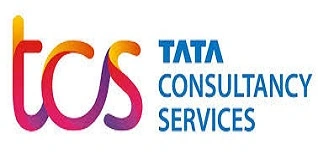

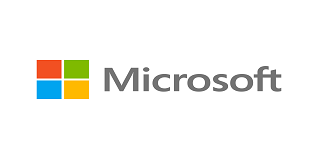
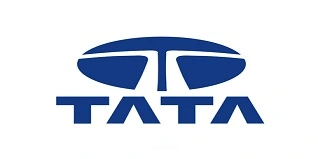

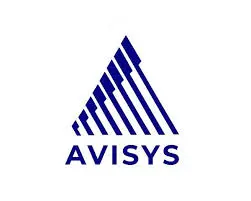





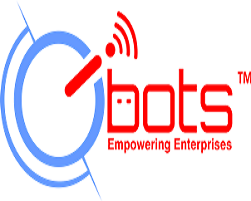
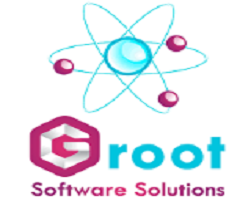
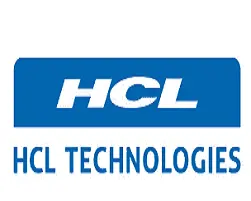
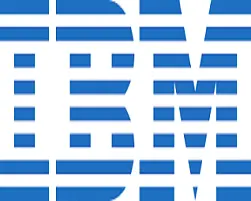
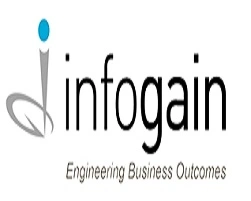
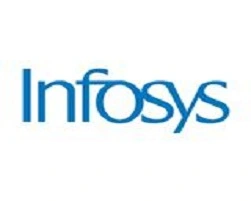
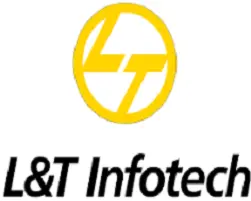
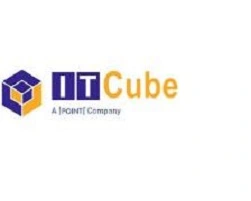
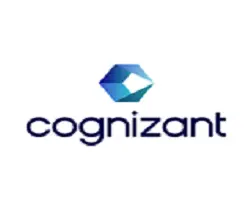
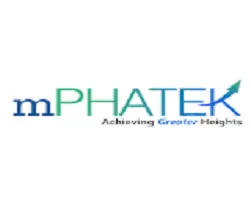
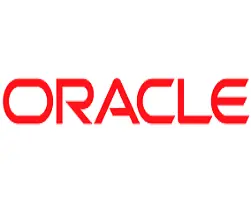

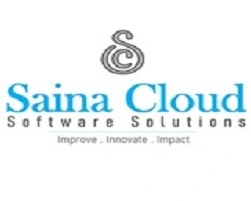




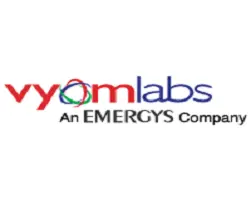

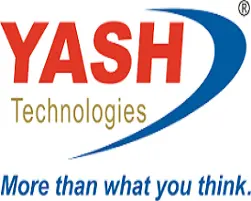
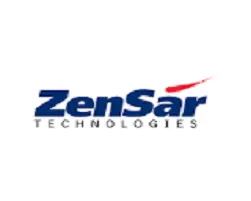
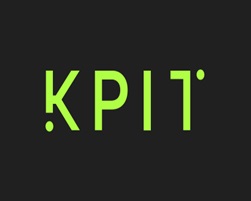
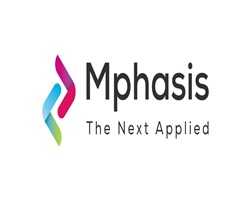
Red Hat OpenShift is an enterprise-ready Kubernetes container orchestration platform that enables developers to build, deploy, and manage applications in a cloud-native environment. It adds essential features like automated CI/CD pipelines, integrated developer tools, enhanced security, and scalable deployment capabilities, making it ideal for large-scale enterprise applications.
Red Hat OpenShift offers several powerful features, including:
OpenShift boosts developer productivity through its integrated developer tools, such as Source-to-Image (S2I), which streamlines the process of converting source code into runnable containers. The built-in CI/CD pipelines allow for faster code builds, testing, and deployments, enabling rapid application development and delivery.
OpenShift supports both horizontal and vertical scaling. Horizontal scaling allows applications to scale out by adding more container instances based on traffic demand, while vertical scaling adjusts resource allocation like CPU and memory for individual containers. OpenShift’s automated scaling ensures that applications maintain optimal performance under varying loads.
While Kubernetes is a powerful container orchestration platform, OpenShift enhances Kubernetes by adding additional features designed for enterprise environments, such as built-in CI/CD pipelines, integrated developer tools, more robust security features, and enterprise support. OpenShift also provides an easy-to-use web console for managing deployments, making it more user-friendly.
OpenShift employs multiple security mechanisms, such as role-based access control (RBAC), security context constraints (SCC), and integrated vulnerability scanning of container images. These measures ensure that only authorized users and applications can access resources, helping to safeguard applications and data from threats.
OpenShift Operators are Kubernetes-native applications that automate the deployment, scaling, and management of complex applications. They extend the Kubernetes API to handle specific tasks like configuring applications, managing updates, and maintaining health. Operators simplify the operational complexity of running stateful and highly available applications on OpenShift.
Yes, OpenShift is designed for hybrid cloud environments. It allows businesses to deploy and manage applications across on-premises, public cloud, or multi-cloud infrastructures, all while maintaining a consistent management experience. OpenShift provides tools that ensure seamless integration and data portability across various cloud platforms.
OpenShift supports Continuous Integration and Continuous Deployment (CI/CD) through its integrated Jenkins pipeline and OpenShift Pipelines. Developers can automate the building, testing, and deployment of applications directly from their source code repositories. This reduces manual intervention and accelerates the software release cycle.
Using OpenShift for containerized applications offers several benefits:
OpenShift supports multi-cloud deployments by providing a consistent platform across different cloud providers. Whether you’re using AWS, Google Cloud, Microsoft Azure, or on-premises infrastructure, OpenShift allows you to manage and scale applications seamlessly across these environments using a single control plan
Red Hat OpenShift supports a wide variety of programming languages and frameworks, including Java, Python, Node.js, Ruby, Go, .NET, and PHP. It also supports numerous databases, messaging systems, and microservices architectures, making it adaptable to a wide range of application types.
OpenShift provides robust persistent storage options for stateful applications through integration with Red Hat OpenShift Container Storage (OCS) and third-party storage providers. It ensures that data is stored persistently, even when containers are scaled, moved, or restarted. This is crucial for databases and other stateful workloads.
Yes, OpenShift supports deploying AI/ML models by providing a scalable platform for training and inference. Data scientists can utilize popular frameworks such as TensorFlow, PyTorch, and Scikit-learn, while OpenShift’s automated scaling ensures that ML workloads are distributed efficiently across available resources.
Red Hat OpenShift offers multiple deployment options to fit different business needs:
These FAQs provide a comprehensive overview of Red Hat OpenShift, emphasizing its features, use cases, and the many ways it enhances modern application development, deployment, and management across hybrid and multi-cloud environments.
Basavanagudi | HSR Layout | Sadashivanagar | Jayanagar | Koramangala | Whitefield | Banashankari | Marathahalli | BTM Layout | Electronic City | Rajajinagar | Domlur | Indiranagar | Malleshwaram | Yelahanka | Cooke Town | Nagarbhavi | Bannerghatta Road | Chandapura | Dasarahalli | Devanahalli | Anandnagar | Avenue Road | Byatarayanapura
I had an amazing experience with this service. The team was incredibly supportive and attentive to my needs. The quality of the work exceeded my expectations. I would highly recommend this to anyone looking for reliable and professional service."
I had an amazing experience with this service. The team was incredibly supportive and attentive to my needs. The quality of the work exceeded my expectations. I would highly recommend this to anyone looking for reliable and professional service."
I had an amazing experience with this service. The team was incredibly supportive and attentive to my needs. The quality of the work exceeded my expectations. I would highly recommend this to anyone looking for reliable and professional service."
I had an amazing experience with this service. The team was incredibly supportive and attentive to my needs. The quality of the work exceeded my expectations. I would highly recommend this to anyone looking for reliable and professional service."
I had an amazing experience with this service. The team was incredibly supportive and attentive to my needs. The quality of the work exceeded my expectations. I would highly recommend this to anyone looking for reliable and professional service."
Red Hat OpenShift is an enterprise-grade, open-source container platform designed to empower organizations to build, deploy, and manage applications consistently across a range of environments. Built on Kubernetes, OpenShift adds a layer of robustness, flexibility, and security, making it a top choice for enterprises looking to accelerate their digital transformation journey while ensuring operational efficiency.
Integrated Development and CI/CD Capabilities
OpenShift simplifies the development lifecycle with its built-in CI/CD tools, allowing developers to automate builds, testing, and deployments. Through OpenShift Pipelines, developers can easily create CI/CD workflows tailored to application needs, fostering a collaborative DevOps environment where code transitions smoothly from development to production.
Multi-Cloud and Hybrid Cloud Support
One of OpenShift’s defining strengths is its adaptability across cloud environments. Organizations can deploy applications across public clouds (like AWS, Azure, and Google Cloud) or on-premises setups, making it ideal for hybrid and multi-cloud strategies. This flexibility enables companies to avoid vendor lock-in, allowing them to leverage the best tools and infrastructure suited to their business needs.
Enterprise-Grade Security and Compliance
Security is embedded in every layer of Red Hat OpenShift, ensuring enterprise-grade protection for mission-critical applications. It includes features like integrated image scanning, role-based access control (RBAC), and OpenShift’s Security Context Constraints (SCCs) for managing user permissions. These security features not only protect against vulnerabilities but also help organizations adhere to strict compliance standards in highly regulated industries.
Automated Operations with Red Hat OpenShift
OpenShift’s extensive automation tools help streamline operational tasks, making it easier to manage workloads at scale. Key features include automated updates, scaling, and lifecycle management, which reduce manual intervention and minimize downtime. With Red Hat OpenShift, IT teams can rely on a stable, automated environment to optimize resource use, saving time and cost.
Developer-Focused Tools and Compatibility
OpenShift is designed with developers in mind, supporting various programming languages, frameworks, and databases. Integrated developer tools like Source-to-Image (S2I) make it easy to turn source code into a deployable image, speeding up the development process. With OpenShift’s comprehensive developer tools, teams can focus on innovation without worrying about the complexities of container orchestration.
Red Hat OpenShift offers multiple editions to suit different business needs:
Each edition provides unique benefits, allowing organizations to choose the option that best aligns with their operational, financial, and strategic requirements.
With OpenShift, organizations can seamlessly embrace modern technologies like AI/ML, IoT, and microservices. By facilitating rapid deployment, scalability, and enhanced security, OpenShift becomes a vital part of a company’s digital transformation. Its Kubernetes-based architecture allows IT teams to modernize legacy applications or develop cloud-native applications, all while maintaining high standards of security and compliance.
Starting with Red Hat OpenShift is straightforward, with various resources available for onboarding, including comprehensive documentation, training, and dedicated support. OpenShift’s extensive developer and operations resources ensure teams can maximize the platform’s capabilities to support both development speed and operational stability.
Red Hat OpenShift has quickly become a go-to platform for enterprises seeking to enhance efficiency, improve scalability, and accelerate development processes. As a versatile, Kubernetes-based platform, OpenShift provides the infrastructure and tools needed for diverse applications across various industries, making it indispensable for businesses pursuing modernization. Here’s an in-depth look at some key applications of Red Hat OpenShift.
1. Cloud-Native Application Development
OpenShift enables businesses to adopt a cloud-native approach by facilitating containerized application development and deployment. This is ideal for enterprises shifting away from traditional monolithic applications toward more agile, microservices-based architectures. With built-in support for microservices, developers can create and manage independent services that improve agility, reduce deployment times, and allow for faster iteration of new features.
2. CI/CD and DevOps Automation
Red Hat OpenShift is essential for organizations aiming to streamline Continuous Integration/Continuous Deployment (CI/CD) pipelines and embrace DevOps practices. OpenShift integrates powerful CI/CD tools that automate testing, deployment, and scaling, allowing for a consistent and reliable development-to-production workflow. By automating these tasks, OpenShift helps reduce human error, speeds up the software release process, and supports continuous delivery for faster innovation.
3. Hybrid and Multi-Cloud Deployments
OpenShift’s multi-cloud and hybrid cloud support allows businesses to run applications across public cloud providers like AWS, Google Cloud, and Azure, as well as on-premises data centers. This flexibility is ideal for companies with specific data sovereignty requirements or those needing seamless cloud mobility. OpenShift’s consistent management tools across environments enable a true hybrid or multi-cloud infrastructure, making it easier to scale, deploy, and manage workloads without vendor lock-in.
4. Big Data and Analytics
Many organizations use Red Hat OpenShift to process large volumes of data, perform real-time analytics, and generate insights that drive business decisions. OpenShift’s scalability and ability to handle high data throughput make it ideal for big data applications, including data aggregation, predictive analytics, and machine learning model deployment. By running data-intensive applications on OpenShift, businesses can unlock the potential of their data and leverage analytics for competitive advantage.
5. Artificial Intelligence and Machine Learning (AI/ML)
OpenShift is becoming a crucial platform for AI and ML workloads, supporting frameworks like TensorFlow, PyTorch, and Jupyter. OpenShift offers resources for training, testing, and deploying machine learning models at scale, enabling businesses to innovate with AI-powered applications. The platform’s containerized environment ensures reproducibility and scalability, allowing data scientists and ML engineers to deploy complex models while managing compute resources efficiently.
6. Internet of Things (IoT)
Red Hat OpenShift is highly applicable for IoT applications where data processing and low-latency responses are critical. OpenShift’s flexible architecture and support for edge computing allow IoT developers to deploy applications closer to the data source, improving response times and reducing bandwidth costs. OpenShift also simplifies the management of numerous edge devices, providing a reliable, scalable infrastructure to support IoT ecosystems in sectors like manufacturing, healthcare, and transportation.
7. Modernizing Legacy Applications
For organizations with legacy systems, OpenShift serves as an excellent platform for modernization. Businesses can containerize existing applications, enhancing performance and allowing incremental updates without overhauling the entire system. This approach makes it easier to extend the life of legacy applications, improve operational efficiency, and reduce downtime during updates or migrations. OpenShift’s tools also ensure legacy systems can integrate with modern, cloud-native applications.
8. High-Performance Web Applications
OpenShift’s container-based platform is optimal for high-traffic web applications that require robust performance and scalability. By leveraging OpenShift, developers can easily manage traffic spikes, scale web services, and maintain availability, ensuring a seamless user experience. Features like auto-scaling, load balancing, and automated monitoring make it easier to support demanding web applications in sectors like e-commerce, media streaming, and online services.
9. Compliance and Regulatory Workloads
OpenShift’s security-focused features, such as role-based access control, encrypted data handling, and integrated vulnerability scanning, make it well-suited for industries with strict compliance and regulatory requirements. Healthcare, finance, and government sectors benefit from OpenShift’s ability to meet standards such as HIPAA, GDPR, and PCI-DSS. The platform’s built-in tools allow organizations to maintain compliance while ensuring the integrity and privacy of sensitive data.
10. Disaster Recovery and Business Continuity
OpenShift also supports robust disaster recovery and business continuity strategies by enabling application redundancy across multiple locations. OpenShift’s container-based approach makes it easier to replicate environments and deploy applications in different regions or cloud providers, ensuring business resilience. This capability helps businesses avoid data loss, minimize downtime, and quickly recover from unforeseen events.
Radical Technologies is the leading institute for Red Hat OpenShift Training in Bangalore, offering comprehensive and industry-relevant courses for professionals looking to advance their careers in container orchestration and cloud-native application development. As an established leader in IT training, we specialize in providing expert-led Redhat Openshift Training designed to equip learners with the skills needed to thrive in today’s competitive tech environment.
Our Openshift Training programs are designed for developers, administrators, and IT professionals who want to master Red Hat OpenShift’s powerful container management and orchestration capabilities. Whether you’re looking for Openshift Certification, Openshift Kubernetes Certification, or aiming to become a certified Red Hat Openshift Administrator, Radical Technologies offers tailored Openshift Training In Bangalore and globally accessible Openshift Online Training options.
We offer a variety of Openshift Courses, including:
At Radical Technologies, we are committed to providing the best Redhat Openshift Certification and training in Bangalore, with real-world applications and in-depth content to ensure our students are well-prepared for the challenges of modern IT infrastructures. Whether you’re interested in Openshift Kubernetes Certification or looking to advance your skills with Openshift Administration Course, we have a program to suit your needs.
Our Openshift Training Online options make it easy to access top-tier education from anywhere in the world, while our Red Hat Openshift Course In Bangalore offers a hands-on, classroom-based learning experience led by industry experts. From Openshift Training And Certification to Openshift Online Certification In Bangalore, Radical Technologies is your trusted partner for achieving your career goals in OpenShift technology.
Join the ranks of successful professionals who have advanced their careers through our Redhat Openshift Classes In Bangalore and Openshift Certification Training. Explore our training offerings today and start your journey to mastering Red Hat OpenShift with the best in the industry!


(Our Team will call you to discuss the Fees)


(Our Team will call you to discuss the Fees)